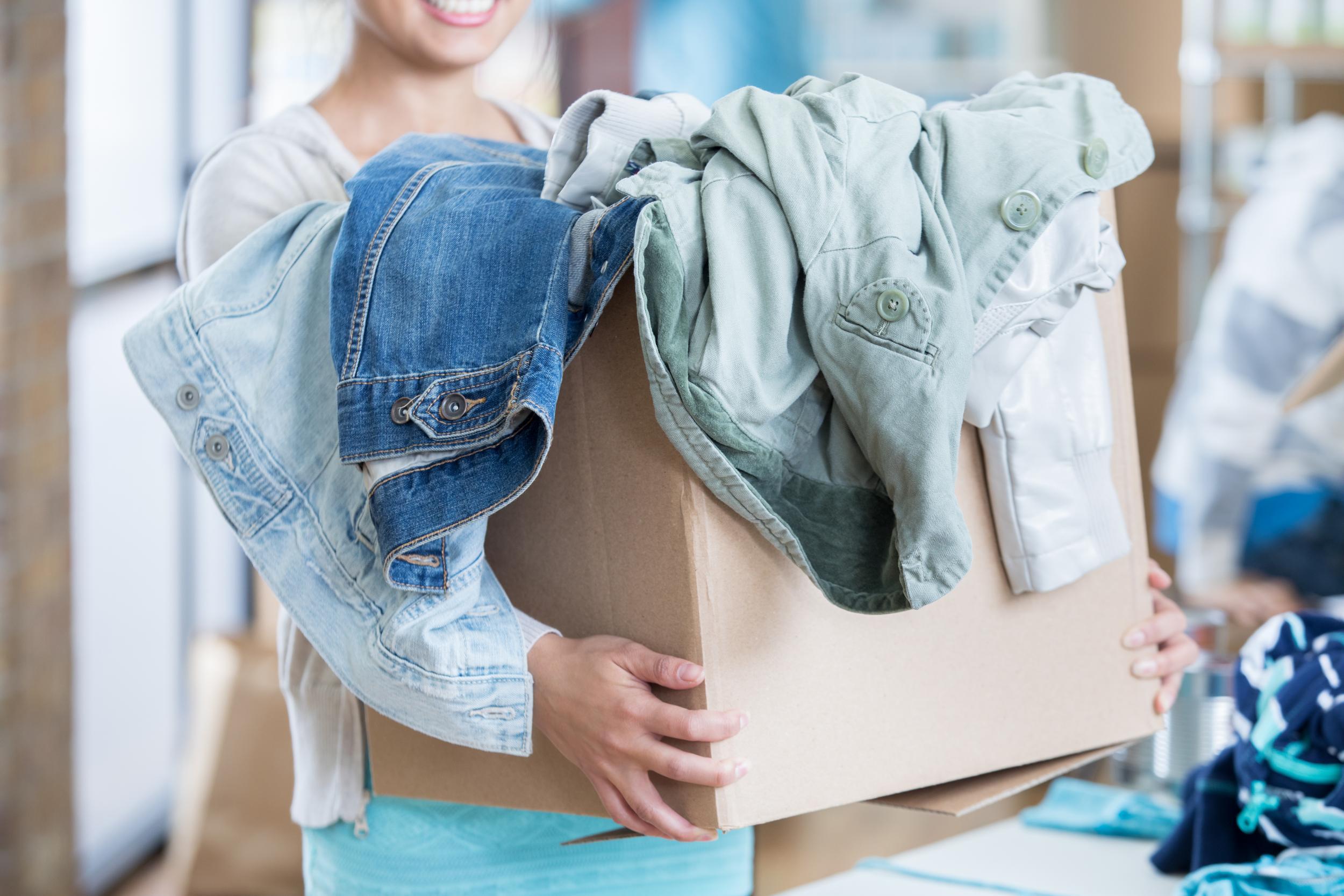Woman who went on year-long shopping ban and gave away belongings reveals what she learned
Cait Flanders only spent money on experiences for 12 months

Your support helps us to tell the story
From reproductive rights to climate change to Big Tech, The Independent is on the ground when the story is developing. Whether it's investigating the financials of Elon Musk's pro-Trump PAC or producing our latest documentary, 'The A Word', which shines a light on the American women fighting for reproductive rights, we know how important it is to parse out the facts from the messaging.
At such a critical moment in US history, we need reporters on the ground. Your donation allows us to keep sending journalists to speak to both sides of the story.
The Independent is trusted by Americans across the entire political spectrum. And unlike many other quality news outlets, we choose not to lock Americans out of our reporting and analysis with paywalls. We believe quality journalism should be available to everyone, paid for by those who can afford it.
Your support makes all the difference.There’s a reason it’s called retail therapy - but does it really make us happy?
Cait Flanders, the author of “The Year of Less: How I Stopped Shopping, Gave Away My Belongings, and Discovered Life Is Worth More Than Anything You Can Buy in a Store,” decided to implement a year-long shopping ban and give away her belongings after she realised buying new things wasn’t actually making her feel better.
Flanders told The Independent she decided to make the change in her life when she noticed she had 54 books in her home that she hadn’t yet read - and that she was “never going to find happiness in my stuff.”
The books, as with most of the belongings she gave away, were impulse purchases - or aspirational purchases.
“I would immediately go on a website and buy a book and I wouldn’t ask myself when I would actually read it,” Flanders told us.
But once she started to go through what she had, she realised many of the purchases didn’t reflect who she actually was as a person.
“A little more than halfway through I realised I held on to stuff that I had bought for an aspirational self.
“Classical novels, like I would be an interesting person if I read those books. Or a camera thinking I would like to be the kind of person that takes better pictures,” she said.
After realising this, and sorting her belongings by what she had bought for “the person I am right now or the person I want to become,” Flanders “got rid of the stuff the real me didn’t actually want.”

This happened to be 70 per cent of her belongings.
Flanders also gave up frivolous shopping - banning purchases of everything except groceries, toiletries, gifts, and experiences.
And while she was able to successfully endure a year without shopping, it wasn’t easy to change her habits.
Flanders said: “It was six months into it and I was still thinking about buying things.
“After six months it got easier. After six months I was like ‘okay, I can actually do this for an entire year,’” she recalled, but said she realised: “You can’t just break a habit in 21 days or 66 days.”
There were two slip-ups she recalls of her year-long ban. The first occurred when a friend visiting asked her to grab a cup of coffee and she completely forgot coffee was on her banned list until he asked how her shopping ban was going.
The second happened on Black Friday when Kindle e-readers were on sale.

“I learned a pretty hard lesson. I had a really bad habit of talking myself into buying things with justifications like you have the money or you had a hard day or you deserve it.”
In a moment of weakness, Flanders purchased a new e-reader online to replace her old one - before quickly cancelling the order.
But even while travelling, which she did a lot of that year thanks to her extra money, Flanders had to refrain from the urge to buy souvenirs - by reminding herself often: “What you remember more is what you take pictures of.”
After the year of nothing had ended, Flanders found she had learned an important lesson about shopping.
“Shopping or buying new things is only going to provide short-term happiness. It doesn’t do anything long-term,” she told us.
And for those who are contemplating a shopping ban themselves, Flanders encourages it but advises you shouldn’t jump right into a restrictive ban.
“Don’t even worry about a shopping ban at first. Just track your shopping for thirty days and ask yourself if you are actually happy with how much money you’ve spent and where it went,” she said.
“Buying stuff is not bad,” Flanders concluded, and "What we spend money on is going to look different for everyone."
Join our commenting forum
Join thought-provoking conversations, follow other Independent readers and see their replies
Comments